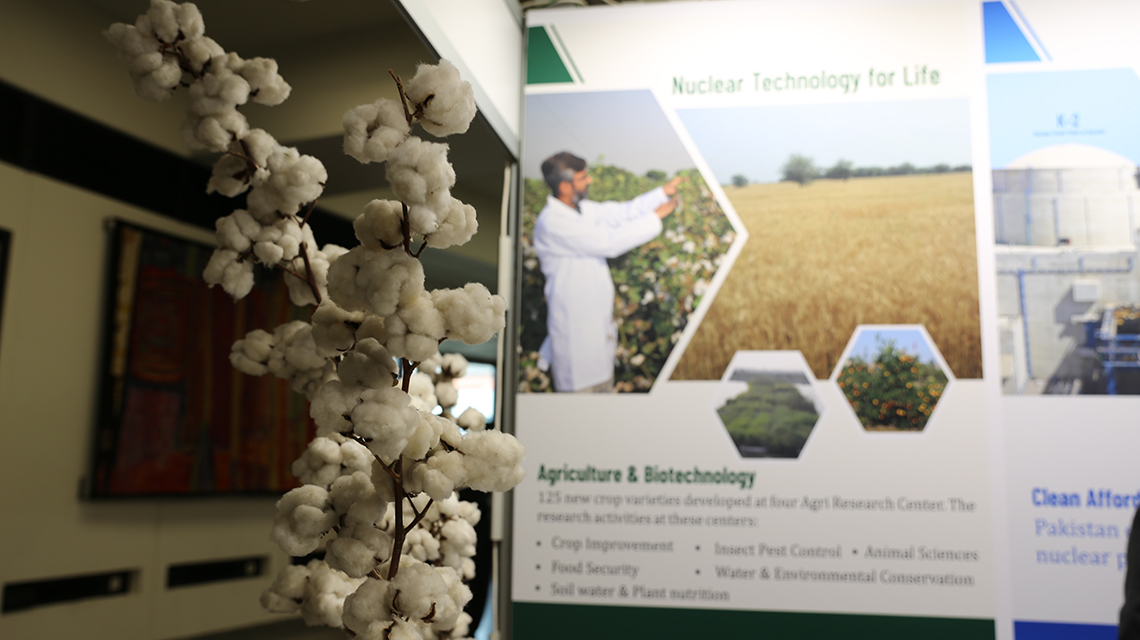Celebrating the Role of Nuclear Science in Cotton Cultivation on World Cotton Day
On the occasion of World Cotton Day, the Director General of the International Atomic Energy Agency (IAEA), Rafael Mariano Grossi, spotlighted the significant contributions of nuclear science in enhancing the growth and sustainability of cotton, one of the globe’s most vital natural fibers. The celebrations took place in Benin, drawing attention to the pivotal role of cotton in the economy and environment.
In a message delivered to more than 400 attendees at the event, Grossi emphasized the IAEA’s involvement in the global ‘Partnership for Cotton’ initiative and underscored the multifaceted importance of this crop. "Cotton is indeed a remarkable crop. It provides essential natural fibers, plays a crucial role in alleviating poverty in some of the world’s least developed nations, supports women’s incomes, and contributes to the reduction of harmful carbon emissions in the atmosphere," he asserted.
The IAEA boasts over sixty years of expertise in developing and disseminating nuclear techniques aimed at optimizing the use of soil, water, and agricultural products like cotton. This work is primarily conducted through the Joint FAO/IAEA Centre for Nuclear Techniques in Food and Agriculture, a collaboration that advances sustainable agricultural practices globally.
The Role of the Joint FAO/IAEA Centre
The Joint FAO/IAEA Centre, located in Seibersdorf, is at the forefront of applied research in agricultural sciences. The center’s laboratories are dedicated to developing nuclear technology applications that are later transferred to countries worldwide through the Agency’s Technical Cooperation Programme. This transfer of technology ultimately benefits farmers, enabling them to implement these innovative techniques directly in their fields.
One prominent example of this technology transfer is the use of irradiation by IAEA/FAO scientists to accelerate the evolution of cotton seeds. This process, known as mutation breeding, involves exposing seeds to radiation to induce genetic mutations, which can result in new plant varieties with enhanced characteristics. These improved traits can include increased resilience to environmental stresses such as drought, heat, and disease.
Impact of Mutation Breeding in Pakistan
The practical benefits of mutation breeding are vividly illustrated in Pakistan, where this technique has been employed to develop 32 new cotton varieties since 1970. More than 40 percent of the cotton-producing regions in Pakistan now cultivate these new varieties, which have been specifically adapted to cope with the challenges posed by climate change. These improved cotton strains offer greater resilience and productivity, thereby contributing significantly to the agricultural economy.
Mutation breeding, a process that may sound complex, essentially allows scientists to speed up the natural mutation process that occurs in plant genomes. By doing so, they can selectively breed plants that exhibit desirable traits, such as enhanced growth or resistance to pests, much faster than traditional breeding methods would allow.
The Environmental and Economic Significance of Cotton
Cotton is not just a crucial economic commodity; it is also environmentally significant. As a natural fiber, cotton is biodegradable and more sustainable compared to synthetic fibers. The cultivation and processing of cotton provide livelihoods for millions of people globally, particularly in rural and developing regions where economic opportunities may be limited.
Moreover, cotton plants contribute to environmental health by acting as carbon sinks. Through the process of photosynthesis, cotton plants absorb carbon dioxide from the atmosphere, helping to mitigate the effects of climate change. This dual role of cotton as both an economic and environmental asset makes it a crop worth celebrating and investing in.
The Future of Cotton Cultivation with Nuclear Science
As climate change continues to pose challenges to agriculture worldwide, the role of innovative technologies, such as those developed through nuclear science, becomes increasingly critical. The IAEA’s ongoing research and development efforts in this field aim to create more sustainable and resilient agricultural practices that can withstand the pressures of a changing climate.
The collaboration between the IAEA and FAO exemplifies the potential of international partnerships in addressing global challenges. By leveraging the unique capabilities of nuclear science, these organizations are making strides in improving food security, enhancing crop productivity, and promoting sustainable agricultural development.
Conclusion
World Cotton Day serves as a reminder of the vital role that cotton plays in our world, both as a natural resource and as an economic driver. Through the innovative application of nuclear science, organizations like the IAEA are helping to ensure the continued growth and sustainability of this essential crop.
As we look to the future, the integration of advanced scientific techniques in agriculture offers a promising path towards resilience and sustainability. By embracing these innovations, we can continue to support the communities and ecosystems that depend on cotton, ensuring that it remains a valuable resource for generations to come.
For more information on the role of nuclear science in agriculture, you can visit the IAEA’s official website.
For more Information, Refer to this article.
























![The Apex Legends Digital Issue Is Now Live! Apex Legends - Change Audio Language Without Changing Text [Guide]](https://www.hawkdive.com/media/5-Basic-Tips-To-Get-Better-On-Apex-Legends-1-218x150.jpg)








